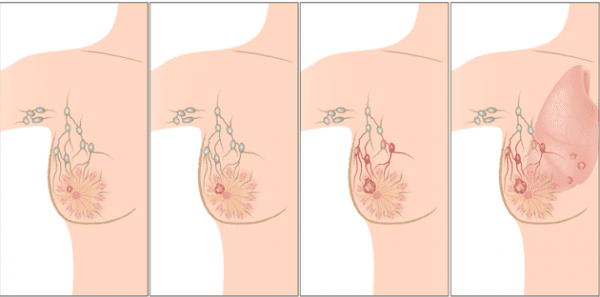
Except for skin cancer, breast cancer is the most common cancer in women,reports the American Cancer Society. Research suggest over 40,000 women will die from breast cancer this year.
It could happen to anyone at any time, but there are certain things that put you at higher risk of getting cancer. And, according to a recent study at Harvard University, there could be another surprising culprit related to breast cancer.
The dangerous habit
The study collected data from 1989 to 2013 and found that exposure to outdoor artificial light during night hours can increase the risk of breast cancer - 110,000 women were evaluated. Researchers found that participants living or working in places with more outdoor artificial light at night were 14 percent more likely to get breast cancer compared to the other participants.
According to the study, "The association between outdoor light at night and breast cancer was found only among women who were premenopausal and those who were current or past smokers." The association was also stronger for women who worked night shifts.
Researchers hypothesize that the artificial light can mess with your "biological clock" by changing hormones in the female body, making the woman more prone to developing breast cancer.
The study also said that "The authors acknowledged that further work is required to confirm the study findings and clarify potential mechanisms." Though it's not definitive, the potential correlation is startling.
Precautions to take
Breast cancer treatment is most successful when the cancer is caught in the early stages. Early detection becomes even more important since research might suggest something as seemingly harmless as lighting can affect your chances of getting breast cancer. Women should do self-examinations regularly, and women should start having annual mammograms at age 45, according to the American Cancer Society.
If you notice any of these symptoms, you should probably check with your doctor right away to make sure everything is OK.
-
Fixed (usually painless) lump in your breast, underarm or neck
-
Reddish or retracted skin around the breast
-
Abnormal fluid coming out of breasts
-
Swelling
-
Pain in the breast or nipple
The American Cancer Society also recommends earlier screenings for women who have a history of breast cancer and suggest all women pay close attention to what feels "normal" when it comes to their health. Talking with a health care provider when you notice changes, pain, or abnormalities could be the key to catching an illness (or even cancer) early.
This article was adapted and translated from the original "egundo estudo, este hábito noturno pode aumentar o risco de câncer de mama" which was originally published on familia.com.br.

